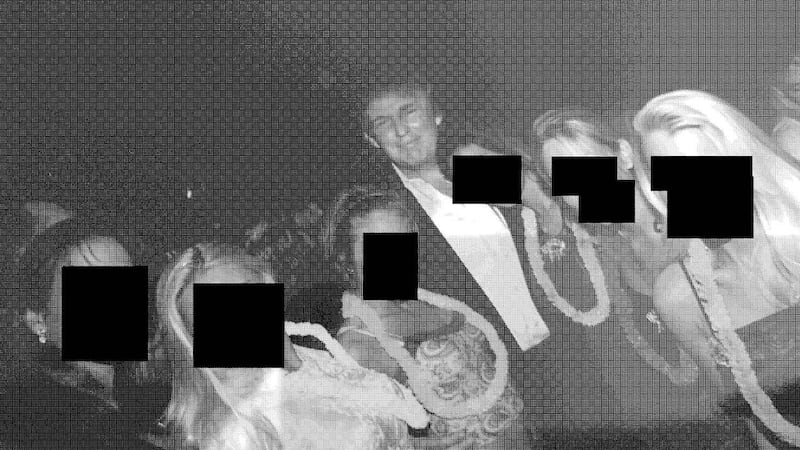US politicians met in emergency sessions on Saturday in a bid to find a solution to the crisis that has led to the US government shutting down after the senate failed to pass a Bill extending federal funding.
As much of the federal government officially closed on Saturday morning after a midnight deadline came and went, the blame-game over the shutdown intensified, with both parties pointing the finger at the other.
US president Donald Trump took to Twitter to lambast Democrats who he said blocked the deal.
Democrats are holding our Military hostage over their desire to have unchecked illegal immigration. Can’t let that happen!
— Donald J. Trump (@realDonaldTrump) January 20, 2018
This is the One Year Anniversary of my Presidency and the Democrats wanted to give me a nice present. #DemocratShutdown
— Donald J. Trump (@realDonaldTrump) January 20, 2018
Democrats are far more concerned with Illegal Immigrants than they are with our great Military or Safety at our dangerous Southern Border. They could have easily made a deal but decided to play Shutdown politics instead. #WeNeedMoreRepublicansIn18 in order to power through mess!
— Donald J. Trump (@realDonaldTrump) January 20, 2018
“Democrats are far more concerned with Illegal Immigrants than they are with our great Military or Safety at our dangerous Southern Border. They could have easily made a deal but decided to play Shutdown politics instead, ” he said on Twitter adding: “Democrats are holding our Military hostage over their desire to have unchecked illegal immigration. Can’t let that happen!”
The shutdown forced Mr Trump to cancel a planned trip to Mar-a-Lago where he was due to mark his first year in office.
But Democrats shot back, pointing out that Republicans control both houses of Congress and the White House.
“Happy anniversary Mr President, your wish came true,” said House of Representatives minority leader Nancy Pelosi referring to his call for a shutdown earlier this year. “The Trump Shutdown is all yours.”
She was speaking after an emergency meeting of the House Democratic Caucus on Saturday morning. House members have been put on notice for the day, and told that votes may be called at short notice.
Debate over extending the government’s spending programme has been mired in controversy for weeks with Democrats demanding that a deal be included for “dreamers” – undocumented immigrants who were brought to the US as children.
While the House of Representatives passed a short-term Bill on Thursday night, it failed in the senate. Despite frantic negotiations on Friday, Republicans failed to muster the 60 votes necessary to vote on a short-term funding measure. A Bill put to the floor by senate majority leader Mitch McConnell shortly after 10pm collapsed, after Democrats decided not to endorse the proposal. Republicans hold 52 seats in the 100-seat chamber, and as a result needed Democratic support to pass the Bill. Five Republicans also voted against the deal.
One possibility under discussion in the senate is a three-week spending deal that would give both parties more time to negotiate a longer-term solution.
The shutdown means that government agencies will close and thousands of federal employees will not report for work and are likely to have their pay suspended. But the timing of the shutdown – at midnight on Friday – means that much of the shutdown’s effect will not be felt until early next week, giving lawmakers time to potentially hammer out a deal over the weekend.
While there have been shutdowns before – the longest occurred during Bill Clinton’s presidency when the government shut down for 21 days – this is the first time a full shutdown has occurred when one party has control of both Houses of Congress and the White House.
Dramatic day
The collapse of the deal followed a dramatic day in Washington on Friday. Earlier, there were signs that a breakthrough might be reached. In the early afternoon the US president hosted the Democrats’ top senator, Chuck Schumer, to a meeting in the White House. But it yielded no deal.
Later in the evening Republican senator Lindsey Graham suggested a shorter-term funding proposal of three weeks rather than four, but this was not supported by Democrats.
White House press secretary Sarah Huckabee Sanders branded senate Democrats as “obstructionist losers, not legislators” in a statement released minutes before the shutdown came into effect.
“Senate Democrats own the Schumer shutdown. Tonight, they put politics above our national security, military families, vulnerable children, and our country’s ability to serve all Americans,” she said in a statement. She said there would be no negotiation on the status of unlawful immigrants “while Democrats hold our lawful citizens hostage over their reckless demands”.
Mr McConnell roundly blamed Democrats for not backing the deal as he spoke in the senate chamber after the vote.
“The government shutdown was 100 per cent avoidable,” he said.
But Mr Schumer hit back, pointing out that several Republicans had also voted against the Bill. He said he had been willing to compromise during his earlier meeting with the president – even giving consideration to the border wall – but said that the president had failed to encourage his party in Congress to accept the compromise.
“What happened to the president Trump who asked us to come up with a deal and promised to take the heat on it? He backed off on the first sign of pressure,” he said. “The blame should crash entirely on president Trump’s shoulders. This will be called the Trump shutdown . . . There is no one who more deserves the blame for the position we find ourselves in than President Trump.”
“A Trump shutdown is a perfect encapsulation of the chaos he was unleashed on our government,” he said.
As the blame-game intensified, a Washington Post-ABC poll found that 48 per cent of Americans blamed Mr Trump and the Republican party for the crisis, with only 28 per cent blaming Democrats.
The last time the government shut down was in 2013 over Barack Obama’s healthcare plan. Government offices and national parks closed for 16 days. According to Moody’s, it cost the economy an estimated $20 billion (€16.4bn).














